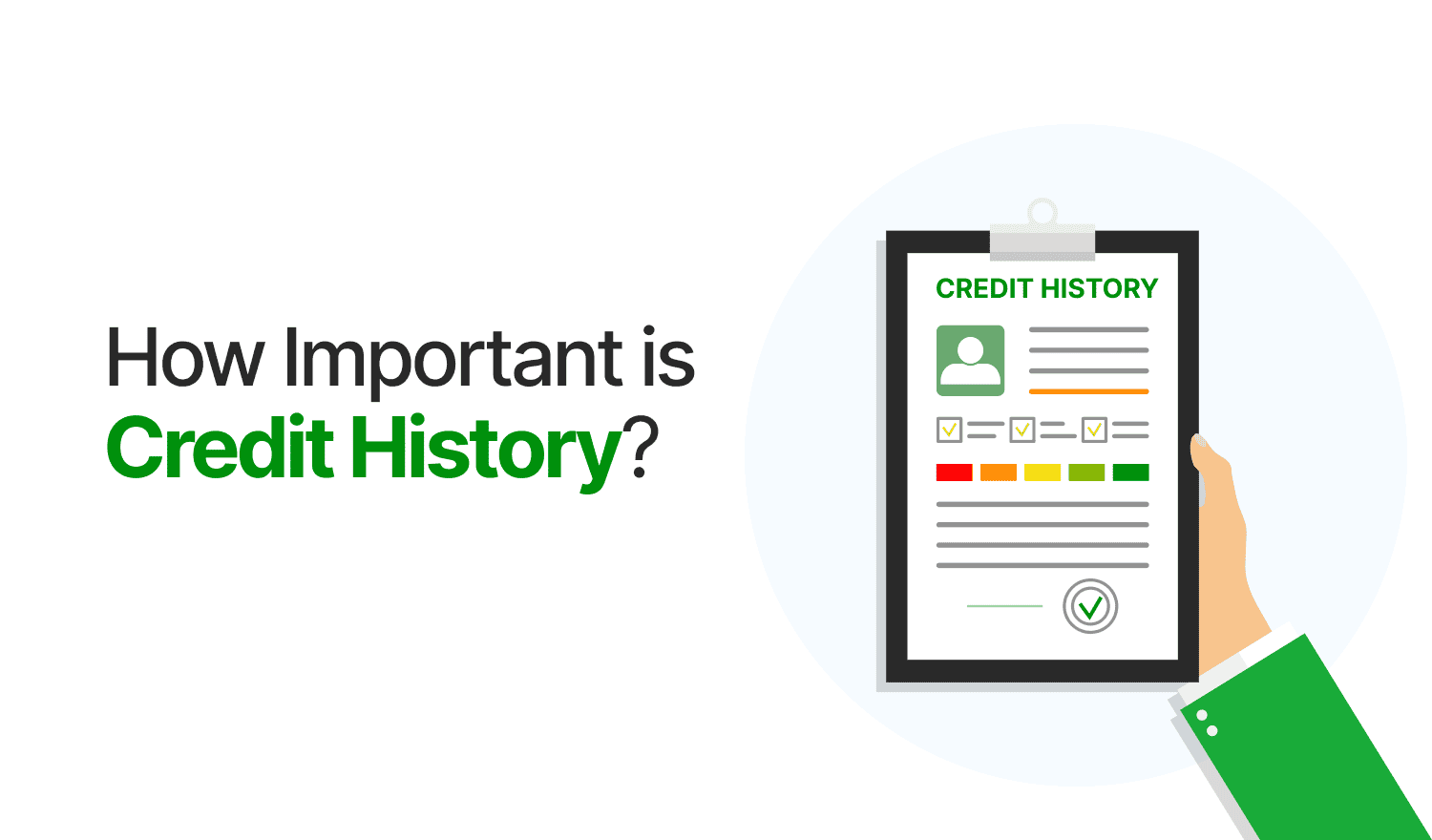How Important is Credit History?

Last Updated : Jan. 17, 2025, 2:56 p.m.
Credit history reflects how you have handled debt in the past and how your financial status is currently. Lenders can understand how many accounts are open and whether you have made the payments on time. Good credit history is very important, and it plays an important part in things like qualifying for a loan or getting a credit card . It demonstrates that you are capable of paying your debts in time and will do so responsibly. Let us now read in detail about credit history.
What is Credit History?
Credit history encompasses all aspects of your earlier credit behavior. It includes your various credit accounts, defaulted or timely payments, and outstanding balances. It is actually your credit record. The credit bureaus keep a record of your credit history and document it in the credit report in proper format. Your credit history is also an important factor in computing your credit score.
What is the Impact of Credit History?
Let us now understand the impact of credit history on the following:
Loan Approvals
When you apply for a loan or credit card, the lender will check your credit history. A positive credit history with timely payments and extended credit accounts will improve your chances of loan approval. However, a bad credit history hampers your chances of getting approval for loans.
Interest Rates
Credit history also has an impact on the interest rates offered on loans. When you have a higher credit score, you can negotiate for better interest rates. You will get lower interest rates. On the other hand, if you have a poor credit score, you will get high interest rates since you are seen as a risky borrower.
Loan Amount
When you apply for a loan amount, you would have decided on a specific amount. The actual amount you will be eligible for depends on your credit history. If your credit history is good, then financial institutions get the impression that you can handle credit responsibly. In that case, you will get the amount you have asked for or you will be eligible for higher loan amounts. On the other hand, if your credit history is poor, then you may not get the amount you have applied for. You will be eligible only for lower loan amounts.
Tips to Build and Maintain a Good Credit History
Here are some important tips to build and maintain a good credit history:
Timely Payments
In order to build and maintain a good credit history, you have to pay your credit card bills and loan EMIs on time. Even a few defaults can be a negative mark in your credit report and can bring down your credit score temporarily. It will pick up only when you have made a few payments on time. Set up auto payments and payment alerts so that you do not miss out on payments.
Low Credit Utilization Ratio
The credit utilization ratio is computed as a percentage of the total available credit limit used. So, if you have a credit card, do not use more than 30% to 40% of the credit limit. Experts recommend this as an ideal CUR to maintain a stable credit history.
Limit the Number of Credit Applications
To obtain a good credit history, limit the number of credit applications made. Whenever you apply for a loan or credit card, the lender will make a hard inquiry on your credit report. Multiple hard inquiries are considered to be detrimental to your credit history and credit score. Also, lenders will get the impression that you are desperate for credit. So, apply for credit only when required. Assess if you need additional credit before applying. Also, do not apply for credit immediately after rejection. Evaluate the reasons for getting rejected. If it is due to your credit history, take steps to improve it and then reapply.
Length of Credit History
Having a stable and long credit history reflects to lenders that you can handle credit well even for long durations. The longer your credit history, the quicker and easier you get your loan and credit card applications approved. Financial institutions consider you as a low risk applicant when your credit report exhibits accounts with long associations. So, do not close accounts with a long credit history. This will improve your overall credit history and credit score.
No Credit History
Individuals with no credit history may also face hassles in getting their loans or credit card applications approved. This is because lenders do not have any reliable data using which they can arrive at a decision about your creditworthiness and financial discipline. So, what do people with no credit history do to get their credit applications sanctioned? There are various simple ways in which individuals can build their credit score. They can take a secured credit card which is given against a fixed deposit and repay the bills on time. They can also get a small credit builder loan and repay the EMIs on time. They can also open a joint credit card with someone who has a good credit history.
Frequently Asked Questions (FAQs)